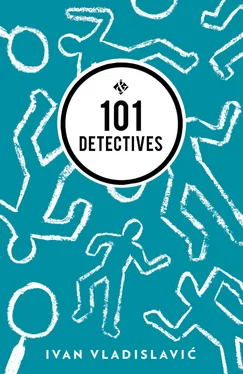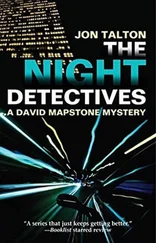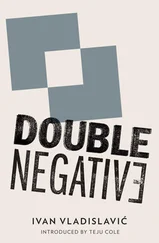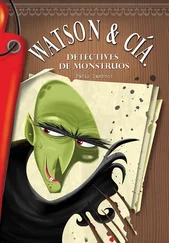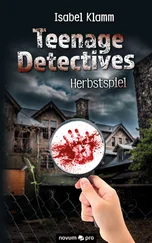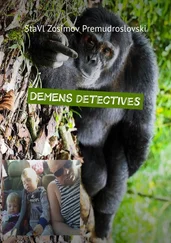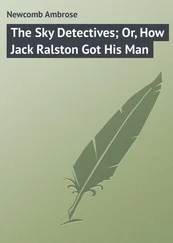Ivan Vladislavic - 101 Detectives
Здесь есть возможность читать онлайн «Ivan Vladislavic - 101 Detectives» весь текст электронной книги совершенно бесплатно (целиком полную версию без сокращений). В некоторых случаях можно слушать аудио, скачать через торрент в формате fb2 и присутствует краткое содержание. Год выпуска: 2015, Издательство: And Other Stories Publishing, Жанр: Современная проза, на английском языке. Описание произведения, (предисловие) а так же отзывы посетителей доступны на портале библиотеки ЛибКат.
- Название:101 Detectives
- Автор:
- Издательство:And Other Stories Publishing
- Жанр:
- Год:2015
- ISBN:нет данных
- Рейтинг книги:4 / 5. Голосов: 1
-
Избранное:Добавить в избранное
- Отзывы:
-
Ваша оценка:
- 80
- 1
- 2
- 3
- 4
- 5
101 Detectives: краткое содержание, описание и аннотация
Предлагаем к чтению аннотацию, описание, краткое содержание или предисловие (зависит от того, что написал сам автор книги «101 Detectives»). Если вы не нашли необходимую информацию о книге — напишите в комментариях, мы постараемся отыскать её.
and
, invites readers to do some detective work of their own. Each story can be read as a story, but many hide clues and patterns. Whether skewering extreme marketing techniques or constructing dystopian parallel universes, Vladislavic will make you look beyond appearances.
101 Detectives — читать онлайн бесплатно полную книгу (весь текст) целиком
Ниже представлен текст книги, разбитый по страницам. Система сохранения места последней прочитанной страницы, позволяет с удобством читать онлайн бесплатно книгу «101 Detectives», без необходимости каждый раз заново искать на чём Вы остановились. Поставьте закладку, и сможете в любой момент перейти на страницу, на которой закончили чтение.
Интервал:
Закладка:
On the seat of my chair lay a goodie bag containing several items of commemorative clothing, a sticker for attaching a licence disc to the windscreen, a sheet of plastic, and some booklets about the new Ford Kafka. The compilers of these publications had evidently been forbidden to depict the product, for there were no photographs at all, only glossy black rectangles and squares.
I turned my attention to the table decorations. The centrepieces proved to be parts of engines, artfully arranged with indigenous fruits and gourds, and proteas and veldgrasses spray-painted black.
The first course stood ready to be consumed: a number of pink shrimps curled up in a nest of alfalfa sprouts. Good manners required that I wait until all my dinner partners were seated. But then Mr and Mrs Rosen arrived, introduced themselves, tucked their napkins into their collars and began to eat. I followed their example. More and more guests appeared. Some opened their goodie bags as eagerly as children, others stored them under their seats without a glance. The air was filled with the clinking of cutlery on china, waiters began to circulate with wine, and soon the seats to the left and right of me were also occupied — Dr and Mrs Immelman, Ms Leone Paterson, Mr Bruintjies. Mr Madondo, whose place I had usurped, seemed not at all bothered by his situation, and my conscience was clear.
Despite our head start, Dr Immelman was the first to finish and, flinging down his fork, he challenged me to a conversation. Only then, when he stared at my lapel, did I realise that all the others were wearing badges with their names on them. However, that was the only uniformity I could discern. Mr Madondo was clad in a well-tailored tux, for instance, whereas Dr Immelman, in the name of the ‘traditional’, had gone for a khaki lounge suit and a hunter’s hat. I asked about the badges. There was a table in the lobby, Dr Immelman said, where they had to be collected. Being new at the game, I had failed to notice it. I rose to rectify the omission — a badge with my name on it would be a far more desirable memento of the evening than any number of T-shirts and caps — but just then the stage lights dimmed, ominous music welled out of the loudspeakers, and the show began.
II
Midnight in Bohemia. In the distance, the silhouette of a castle on a rocky outcrop. At its foot, scraps of alleys and squares, the ruined pergolas of roadside inns, islands of cobble in rivers of shadow. On one of these moonlit islands, some lucky survivors, down at heel and pale as corpses, are trudging endlessly up a single stair. On another, a solitary girl lies writhing. Meanwhile, a boy in striped pyjamas confirms the dimensions of an invisible cell with the palms of his hands.
Then a droning undercurrent in the music surges to the surface. Driven aloft by this sound, a dozen narrow columns begin to rise from the floor. On top of each column a limp figure lies supine, limbs dangling, like a sacrificial victim upon an altar.
Natalie had intimated that Kafka himself would put in an appearance and that this pivotal role might be played by a woman. I was sure she meant herself, but her tone warned me to postpone my surprise for the forthcoming launch, and so I probed no further. Now something in the attitude of the victims, with their bulging middles and bulbous joints, reminded me of her. They looked as if they had been fattened on purpose. I climbed up on my chair — several other guests had already discovered this singular advantage of being at the back — and trained my opera glasses on each of the figures in turn. Their shins and forearms were encased in shiny armour, their knees and elbows in quilted pads. They had round faces and thickly padded bellies. Though I pried at the edges of their shells, I failed to uncover familiar flesh.
The columns continued to rise, each attaining its proper height at its own pace, until it became apparent that they were ranged in two rows to form a colonnade, tapering away towards the backdrop. Just as the last one reached the limits of its extension beneath the stage lights, the droning rose to a pitch of intensity. Crockery rattled and lights flickered. And then the outcrop burst apart, with a crash of cymbals and drums, and a cloud of mist boiled out. For a moment, there was nothing to be seen but furious red light and roiling cloud, nothing to be heard but thundering drums and bleating trumpets. Then an object issued from the crack, and though it was no more than a shape in the mist, charged with pent-up velocity by the laws of diminishing perspective, we knew with certainty that it must be the new Ford Kafka. Upon a narrow ramp it advanced, while elemental forces twisted and turned all around.
It was just as well that Natalie had enlightened me on the difference between industrial theatre and the conventional kind, or I should not have known what to make of this disconcerting excess of effects. Industrial theatre, she said, is not drama but spectacle. Its point is not character but action. And the only action of real import is the climax. There are peaks and troughs, it’s true, but the troughs are short and shallow, and their sole purpose is to separate one peak from another.
To my relief, we now entered such a trough. Figures appeared suddenly with carnival music trailing after them like scarves. A party of young men and women went by, arm in arm. Chinese lanterns glimmered in the chestnut trees. Someone whistled in the dark. A spotlight pointed out an opening and a descending staircase, which technical wizardry had caused to appear in the floor, and the young people walked down it, laughing and talking, sinking away into the underworld. The lanterns swayed on the boughs, fragments of bandstands came and went on a damp wall. Another spotlight played across the shattered castle. Then that beam was broken too by a girl on a trapeze, who flew down from the moon and swooped over our heads, reaching out with one slender arm to catch us up — and missed — and vanished into the darkness.
On the ramp, in the barred shadows of the colonnade, the new Ford Kafka had begun to revolve, metamorphosing by painful degrees into another object. It was long and hooked at one end: that would be the bonnet, curving downwards like a beak. At the other end it was blunt, as if its tail had been lopped by a carving knife. I thought I recognised what the booklets in my goodie bag called the ‘unique Kafka profile’. And yet it still wasn’t clear, it was out of focus, like something wrapped in gauze. This lack of definition made it menacing.
As if to confirm my misgivings, the atmosphere thickened, the music took on a shriller tone, and another peak imposed itself. A pencil-thin spotlight slid down out of the gods and prodded one sacrificial victim, and then another, stirring them into action. One by one, they raised their stiff arms and legs, and scratched at the hot air. That was Natalie at the back, I would swear on it, enormously enlarged by a trick of the light, and quivering to beat the band. The spotlight kept poking and jabbing, like a stick in an anthill, until the stage was in an uproar.
The chirping and chafing reached a crescendo, and trailed off into a grey silence. In a distant corner an archway opened, and a lamp winked within, grew brighter, drew closer. A gondola floated out into the gloom. In the stern stood Death, in a cloak of sorrow. And in the bow stood Kafka, in a trenchcoat and a broad-brimmed hat, with the shadow of Death upon him, gazing unblinkingly ahead.
It was a mistake to use a woman, I told Natalie afterwards. And not just because she plays a socialite in that comedy on TV. It involved too much covering up. The stubbled chin was lifelike, I admit, and the ears were right. But the hat was only there to hold her curls and the coat to flatten out her curves. What was the point? They should have found some scrawny boy, with the right dash of Malay blood, and put him in his shirtsleeves, or a vest to show some ribs. Let him shiver!
Читать дальшеИнтервал:
Закладка:
Похожие книги на «101 Detectives»
Представляем Вашему вниманию похожие книги на «101 Detectives» списком для выбора. Мы отобрали схожую по названию и смыслу литературу в надежде предоставить читателям больше вариантов отыскать новые, интересные, ещё непрочитанные произведения.
Обсуждение, отзывы о книге «101 Detectives» и просто собственные мнения читателей. Оставьте ваши комментарии, напишите, что Вы думаете о произведении, его смысле или главных героях. Укажите что конкретно понравилось, а что нет, и почему Вы так считаете.
